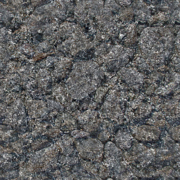Difference between revisions of "Rock tile"
Jump to navigation
Jump to search
m (Add possible resource node spawns - Remove 'Rummage' reference) |
|||
| (23 intermediate revisions by 13 users not shown) | |||
| Line 1: | Line 1: | ||
[[CDB|Main]] / [[:Category:Terrain|Terrain]] / '''{{PAGENAME}}''' | [[CDB|Main]] / [[:Category:Terrain|Terrain]] / '''{{PAGENAME}}''' | ||
| − | ===Description | + | {{terrain |
| − | A '''rock tile''' is a [[tile]] of [[rock]] on the | + | |name=Rock |
| + | |speed=17.30km/h | ||
| + | |type=Natural | ||
| + | |playermade=No | ||
| + | |underground=No | ||
| + | |creation=N/A | ||
| + | |material=stone shards | ||
| + | |method=mine | ||
| + | }} | ||
| + | |||
| + | ==Description== | ||
| + | A '''rock tile''' is a [[tile]] of rock on the ground. | ||
| + | |||
| + | ==Notes== | ||
| + | *Players can [[Prospecting|prospect]] for ore, create [[mining|cave entrances]], and terraform on rock tiles. | ||
| + | |||
| + | *Rock tile terraforming with a pickaxe works in the same way as [[digging]] dirt. Stand on the corner you want to ''lower'', activate a pickaxe, right-click a rock tile, and select ''Mining''. Every few actions you ''lower'' the corner by 1 dirt. All four tiles surrounding the corner must be exposed to rock for this to work. | ||
| + | |||
| + | *Players can raise a corner of an exposed rock tile by activating a [[concrete]], right-clicking the corner that you are standing on and want raised, and selecting 'raise corner'. The slopes away from that corner cannot be higher than 26 to be raised. | ||
| + | |||
| + | *Players can dig down to the rock layer by [[digging]] away all of the [[dirt]] (from each corner) which rests on top of it. On [[Freedom]] Isles, the soil depth varies wildly and may reach as much as 300 dirts to the rock layer, though this is very rare. The average depth is, however, [[Talk:Rock_tile#Soil_Depth|widely contested]], and the factors such as slope, elevation, and random chance strongly affect the depth at which the rock layer is found. It is advisable to dig a deep pit to discover the rock layer before attempting to create sufficient space to create a mine, as this aids planning and also avoids time being wasted in unsuitable mine locations. Depending on location, the rock layer may or may not be below the water level. | ||
| + | |||
| + | * The following types of [[Resource nodes]] can spawn on Rock tiles: [[Mineral debris]], [[Rubble]], [[Snow pile]] and [[Lichen]]. | ||
| + | |||
==See also== | ==See also== | ||
* [[Mining]] | * [[Mining]] | ||
* [[Prospecting]] | * [[Prospecting]] | ||
| − | * [[ | + | * [[Foraging]] |
| + | * [[Stone shards]] | ||
| + | |||
[[Category:Terrain]] | [[Category:Terrain]] | ||
[[Category:Babel/R]] | [[Category:Babel/R]] | ||
Latest revision as of 02:24, 19 December 2023
| Properties |
|---|
|
| Creation |
|
| Material |
|
Description
A rock tile is a tile of rock on the ground.
Notes
- Players can prospect for ore, create cave entrances, and terraform on rock tiles.
- Rock tile terraforming with a pickaxe works in the same way as digging dirt. Stand on the corner you want to lower, activate a pickaxe, right-click a rock tile, and select Mining. Every few actions you lower the corner by 1 dirt. All four tiles surrounding the corner must be exposed to rock for this to work.
- Players can raise a corner of an exposed rock tile by activating a concrete, right-clicking the corner that you are standing on and want raised, and selecting 'raise corner'. The slopes away from that corner cannot be higher than 26 to be raised.
- Players can dig down to the rock layer by digging away all of the dirt (from each corner) which rests on top of it. On Freedom Isles, the soil depth varies wildly and may reach as much as 300 dirts to the rock layer, though this is very rare. The average depth is, however, widely contested, and the factors such as slope, elevation, and random chance strongly affect the depth at which the rock layer is found. It is advisable to dig a deep pit to discover the rock layer before attempting to create sufficient space to create a mine, as this aids planning and also avoids time being wasted in unsuitable mine locations. Depending on location, the rock layer may or may not be below the water level.
- The following types of Resource nodes can spawn on Rock tiles: Mineral debris, Rubble, Snow pile and Lichen.
